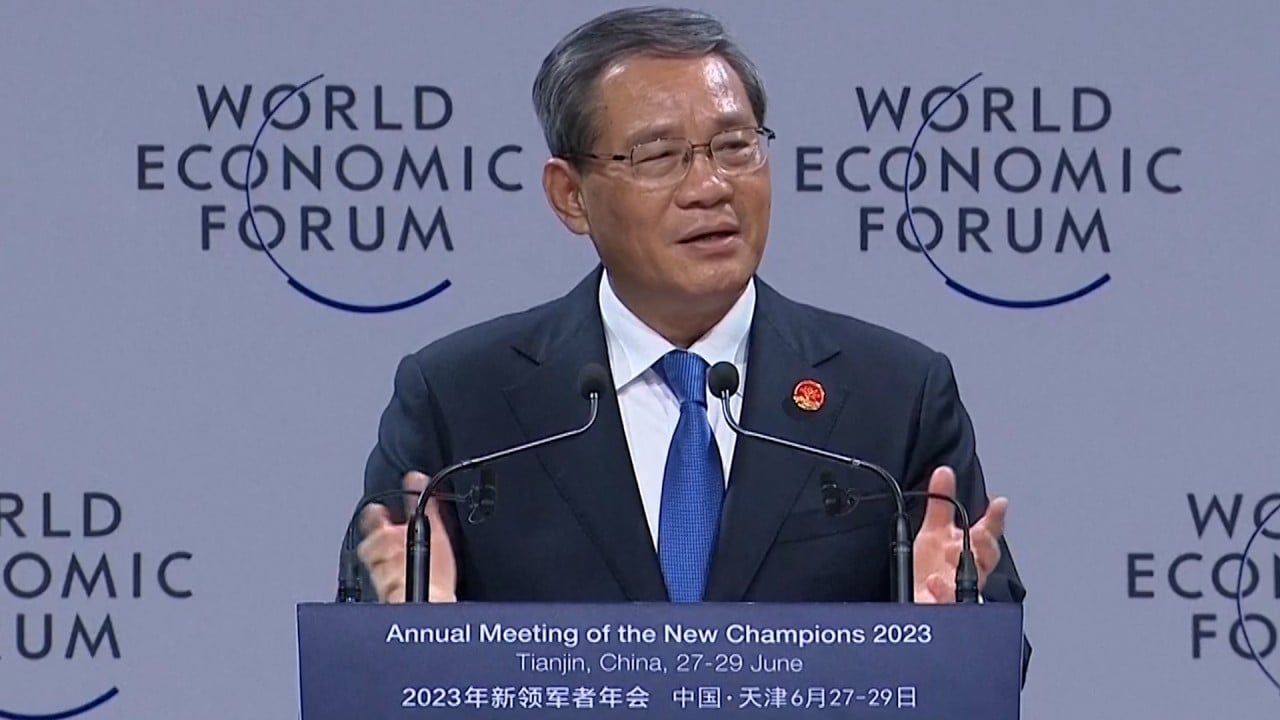
China names forex regulatory head Pan Gongsheng as Communist Party chief for central bank
- Pan, a deputy governor at People’s Bank of China, will replace Guo Shuqing as its party secretary, lender says on website citing official memo
- He is likely to be named PBOC governor next, industry insiders tell the Post, with notice also saying incumbent Yi Gang will step down
The 59-year-old veteran banker is also party secretary and director of China’s foreign exchange regulator – the State Administration of Foreign Exchange (SAFE).
Pan will replace 66-year-old Guo Shuqing as PBOC party secretary, according to a brief statement on the central bank’s website citing a memo from the organisation department of the Central Committee, the party’s top policymaking body.
PBOC governor Yi Gang, 65, who has been at the post since 2018, will also be stepping down, the statement said.
Pan is expected to take Yi’s place as governor, as appointments of party posts usually precede government positions, according to industry insiders speaking on condition of anonymity.
China’s central bank chief calls for confidence, patience amid weak economic data
Yi and Guo are expected to retire, though there has been no official announcement to this effect.
It also coincides with Beijing’s drive to tighten its grip on the financial sector, with forceful corruption crackdowns and the introduction of a new financial regulator earlier this year.
As director of SAFE, Pan has been talking up the Chinese currency’s role as a safe-haven asset to discourage fund outflows and promote the internationalisation of the yuan, though it has yet to become an international reserve currency.
With both Guo and Yi expected to retire, the appointment of Pan can help to “maintain the continuity” of China’s monetary policy, the industry insiders told the Post.
Guo and Yi were posted to national advisory bodies during China’s annual legislative meetings in March, suggesting upcoming retirement.
Guo became a member of the Standing Committee of the National People’s Congress, China’s top legislature, and Yi was named to the economic committee of the Chinese People’s Political Consultative Conference (CPPCC), the country’s top advisory body.
Speculation had swirled – in Western media in particular – on who would succeed Guo as PBOC party chief.
According to Zhao Xijun, a professor of finance Beijing’s Renmin University: “Pan has rich experience in the financial sector, with a proven track record of handling initial public offerings for commercial banks, steering SAFE and keeping the yuan rate basically stable, which made him a convincing choice for the position.
“It will be a challenging job to stabilise China’s economy, boost support for the real economy and cope with the impact from the US-led de-risking efforts in supply chains … China needs someone who can show wisdom, courage and a strong sense of responsibility.”
Pan, a native of Anqing in the eastern province of Anhui, has a doctorate in economics from Renmin University in Beijing. He was a visiting scholar at the Cambridge University in the UK from 1997 to 1998, his official resume says.
He worked with two state banks – the Industrial and Commercial Bank of China and the Agricultural Bank of China – before becoming deputy governor of the PBOC in 2012.
The central bank on Friday pledged to implement prudent monetary policy in a “precise and forceful manner” to support economic growth and employment.
It also came amid a sweeping overhaul in China’s financial sector, under a plan to fight corruption within the industry and bring it more under the control of the ruling party.
China’s state financial sector braces for ‘one of the toughest years’
A new Central Financial Commission has been set up under the Central Committee, with 400 trillion yuan (US$55 trillion) of banking and insurance assets placed under the party’s watch.
A powerful new financial regulator has also been set up. The National Financial Regulatory Administration replaces the China Banking and Insurance Regulatory Commission and has taken on some supervisory functions from the central bank as well as the securities regulator.
At a PBOC meeting on June 20, Pan said anti-corruption measures should be strengthened for young cadres in key positions, the bank said on its website.


